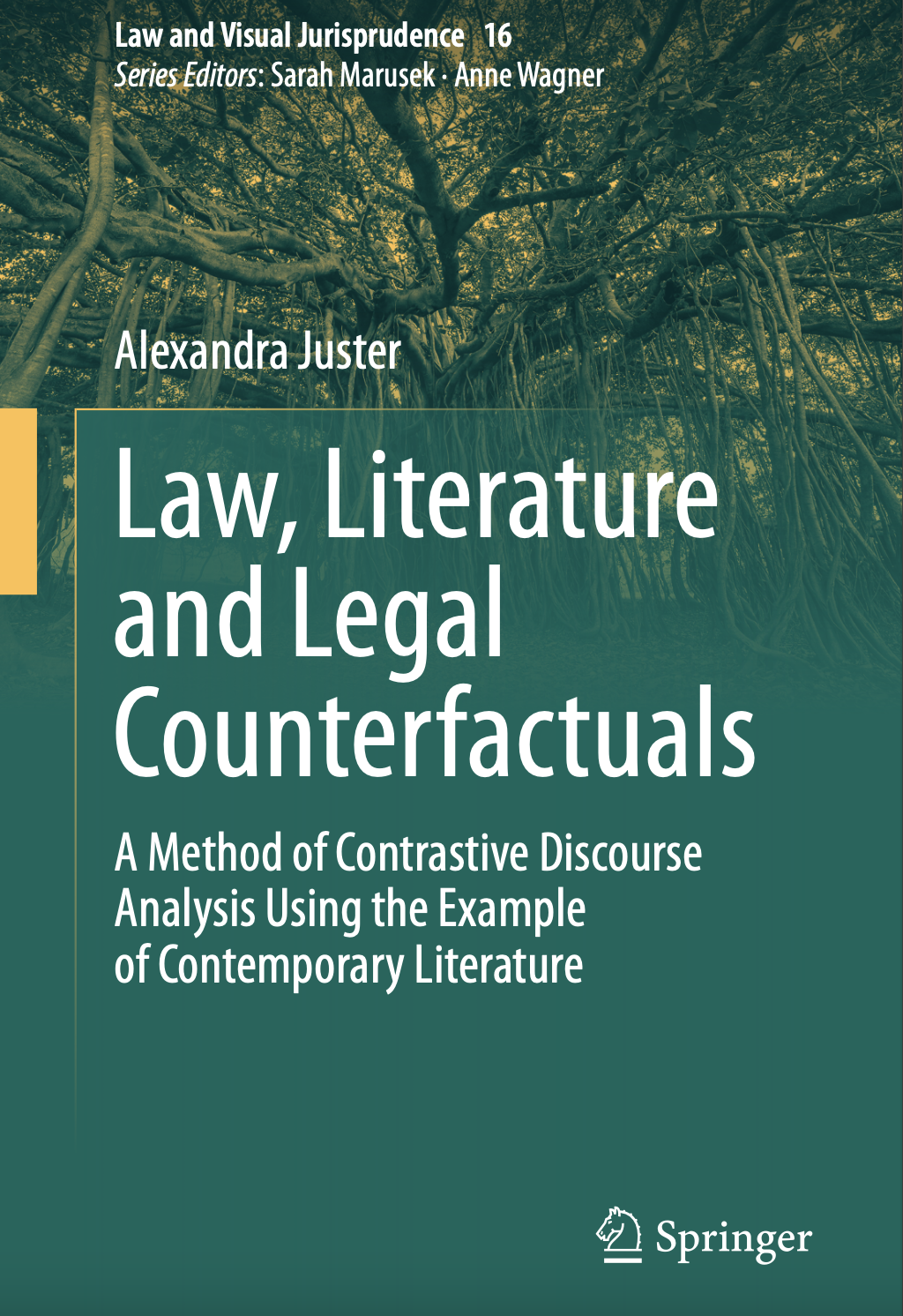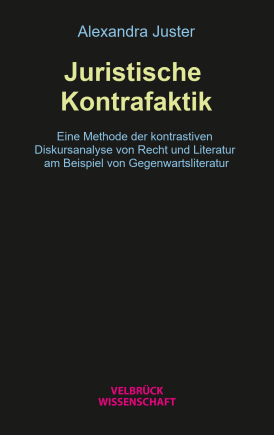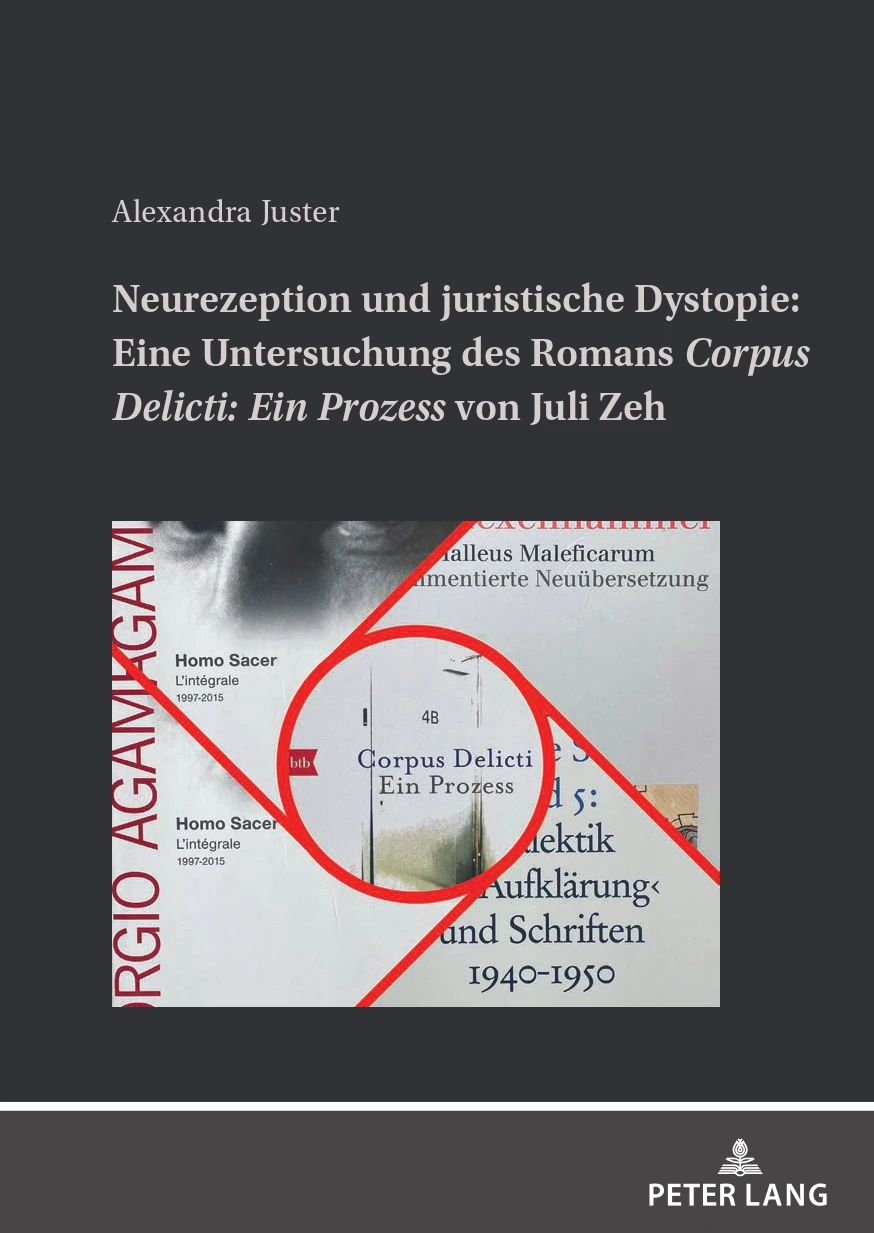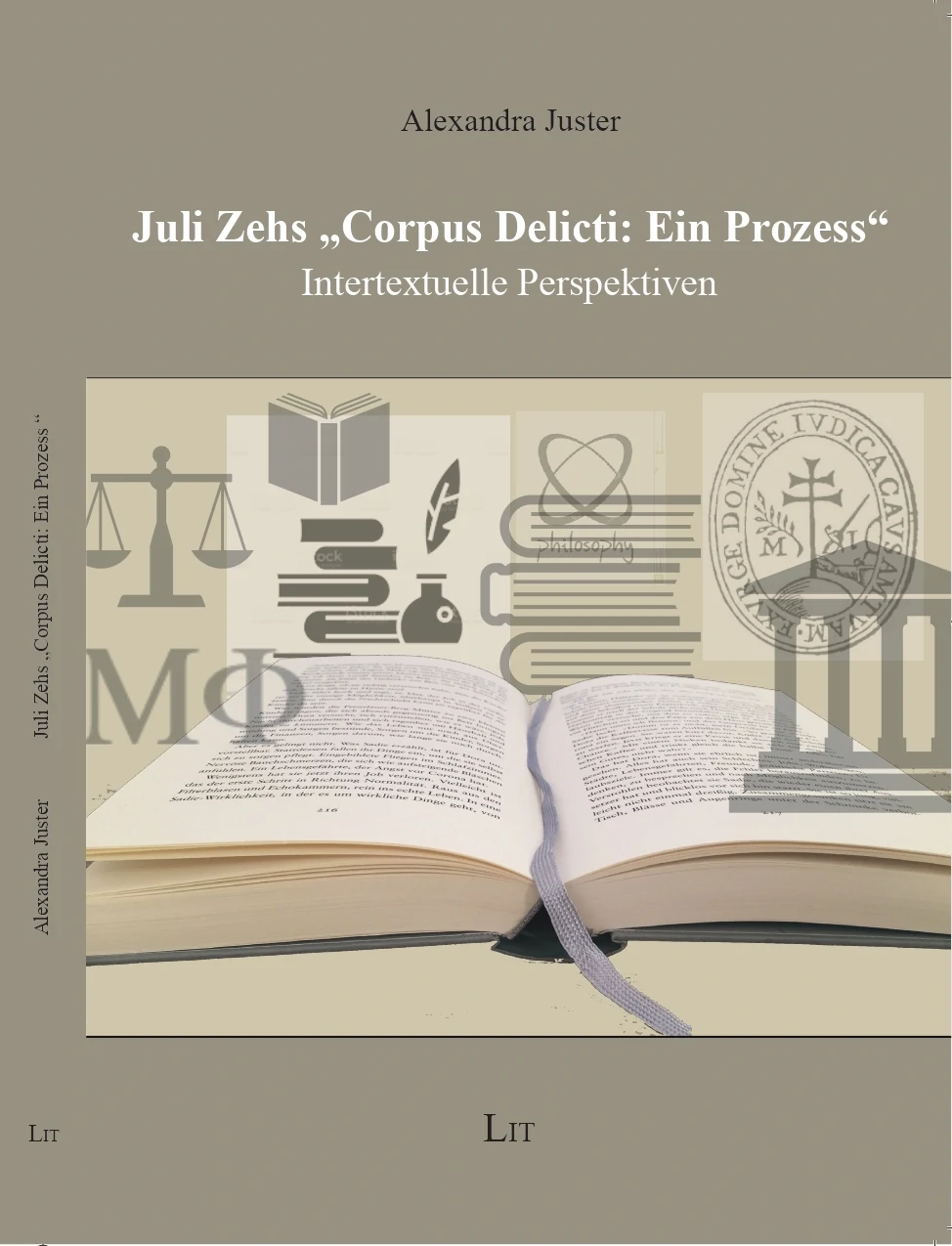Published Monographies

Based on the long-established American law and literature movement, the interdisciplinary research field of 'law and literature' is also beginning to hesitantly establish itself in Europe. The German Collaborative Research Centre (SFB) 1385 ‘Law and Literature’ has provided an important impetus for this development. The present work builds on the latter and aims to develop a contrastive interdisciplinary research method ('legal counterfactual') that claims to offer a methodological basis for the further development of the young research field of 'law and literature'. The particular focus herein is on law in literature. An overview of the heterogeneous research approaches in Italy, France, Belgium, and Germany is first provided. Thereafter, the focus shifts to a theoretical examination of the methodological concepts of interdisciplinarity and counterfactuality on the one hand, and the specific approaches to the text – namely discourse and hermeneutics – on the other. Based on these theoretical 'building blocks', the dividing lines between legal and literary studies are drawn in the first step, to identify the resulting intersections in the second step: the written text as a common working basis on the one hand, and hermeneutics and discourse as a means of analysing texts on the other. The legal discourse in the texts is methodically extracted and contrasted with the real-world legal texts in a juxtaposing manner. The aim of this counterfactual contrast is to determine the degree of correspondence between diegetic and real law. To consolidate this method of legal counterfactuals, five works of contemporary literature are tested and demonstrated in practice: La décision (2022) by Karine Tuil, Sworn Virgin (2014) by Elvira Dones, Unorthodox (2012) by Deborah Feldman, Repenti (2017) by Claude Chossat, and A Slap in the Face (2016) by Abbas Khider. The selection of works is motivated by an interest in touching on different areas of law that have received little attention in interdisciplinary law and literature research to date, such as French anti-terror law, the customary law of the Albanian Kanun , Talmudic law, Corsican feudal vendetta law, and German asylum law.

Based on the long-established American law and literature movement, the interdisciplinary research field of 'law and literature' is also beginning to hesitantly establish itself in Europe, whereby the Münster Collaborative Research Centre (SFB) 1385 Law and Literature has provided an important impetus for this development. The present work builds on the latter and aims to develop a contrastive interdisciplinary research method ('legal counterfactual') that claims to offer a methodological basis for the further development of the young research field of 'law and literature'. The particular focus herein is on law in literature. An overview of the heterogeneous research approaches in Italy, France, Belgium, and Germany is first provided. Thereafter, the focus shifts to a theoretical examination of the methodological concepts of interdisciplinarity and counterfactuality on the one hand, and the specific approaches to the text – namely discourse and hermeneutics – on the other. Based on these theoretical 'building blocks', the dividing lines between legal and literary studies are drawn in the first step, to identify the resulting intersections in the second step: the written text as a common working basis and the inseparable link with human society on the one hand, and hermeneutics and discourse as a means of analysing texts on the other. The legal discourse in the texts is methodically extracted and contrasted with the real-world legal texts in a juxtaposing manner. Such an counterfactual contrast shall facilitate the interdisciplinary communication between literary and legal scholars. To consolidate this method of legal counterfactuals, five works of contemporary literature are tested and demonstrated in practice: La décision (2022) by Karine Tuil, Sworn Virgin (2014) by Elvira Dones, Unorthodox (2012) by Deborah Feldman, Repenti (2017) by Claude Chossat, and A Slap in the Face (2016) by Abbas Khider.
.webp)
Juli Zeh's novel Über Menschen addresses the major social issues under debate: Climate crisis, corona epidemic, right-wing radicalism. Numerous real facts from contemporary politics and society are varied counterfactually in the diegesis and are juxtaposed with reality in perspective in this study. The village appears as a refuge and solution to all problems against an idyllic, bird-chirping background. The strong polarization between town and country, the excessive demands on people in the digital age as well as the handling of the corona epidemic are made clear narratively through targeted semantics. The ethical-moral question of dealing with right-wing radicalism runs through the novel like a thread: "Still be there, still give help, still carry on when it comes to a human being, no matter how he/she thinks, no matter what he/she has done in the past, no matter how 'good' or 'bad' he/she is."

Juli Zeh's Corpus Delicti: Ein Prozess (The Method) deals with the red-hot topic of the healthy body, which is elevated in the novel to the basic principle of the totalitarian state, the METHOD. Against the backdrop of the still ongoing corona epidemic, the study of the new reception of the work provides a wealth of current issues of legal, historical and philosophical nature that are addressed in this volume. The biopolitical theories of Foucault and Agamben run like a thread through the novel's action, Nietzsche's nihilism and Horkheimer's enlightenment provide its basic mood, Hobbesian Leviathan, Rousseau's Social Contract and Carl Schmitt's enemy of the State flow into METHOD's ideology. The events of the trial are interwoven with fragments of the medieval Inquisition trial and the modern German criminal trial; the historical figures of the Inquisitor Heinrich Kramer and Maria Holl, who was persecuted as a witch, serve as models for the main characters of the novel.

Since Juli Zeh's Corpus Delicti, Ein Prozess was published in Germany in 2009, the novel offers highly condensed contemporary literature of the postmodern era, whose wealth of themes, questioning, intertextual and interdisciplinary references goes far beyond the novel itself, but has not been adequately reflected in the volume Fragen zu Corpus Delicti.This shortcoming is now to be remedied by the present work, in which Juli Zeh's life and her personal convictions precede the analysis of the novel for content, linguistic perspectives and possible genre classifications. The exploration of the literary-intertextual environment of the novel leads to the works of Mann, Kafka, Hesse, Atwood, Sophocles, Goethe and Böll, which are reflected in different ways, explicitly or implicitly, in the text and/or ideas of the novel.